Keeping a saltwater fish tank can be an incredibly rewarding experience, but doing so successfully requires meticulous attention to detail and quite a lot of hard work. Unfortunately, many marine enthusiasts make accidental mistakes that can harm the delicate ecosystem of a saltwater aquarium.
This article highlights key missteps in marine tank management that can ruin a reef. But don’t panic! I also explain how to correct your accident errors, setting you back on course for a thriving marine ecosystem you can be proud of.
Key Takeaways
- Regular Testing: Constant monitoring of salinity, pH, and alkalinity levels is imperative to mimic natural seawater conditions and keep the marine ecosystem stable.
- Aquarium Capacity and Diet: Understanding the adult size of fish, their social behavior, and specific dietary requirements is essential to prevent overcrowding and overfeeding, which can lead to a spike in toxin levels.
- Systematic Care: Incorporating strict routines for water changes, supplementing trace elements, and ensuring adequate lighting and filtration is key to a thriving saltwater aquarium.
Neglecting Proper Salinity Levels

Saltwater fish and other marine life need correct salinity levels to remain healthy and thriving. If those salinity levels fluctuate, the stress caused to fish and corals will make them more susceptible to disease and attack by parasites.
Many newbies to the marine hobby don’t realize or overlook the importance of testing their aquarium water regularly and making necessary adjustments. Ideally, you should check the salinity levels in your saltwater aquarium every week by measuring them using a high-quality hydrometer or refractometer.
Aim for a specific gravity of 1.025, which replicates the natural seawater environment and is fine for most marine aquatic creatures.
Overfeeding Your Livestock
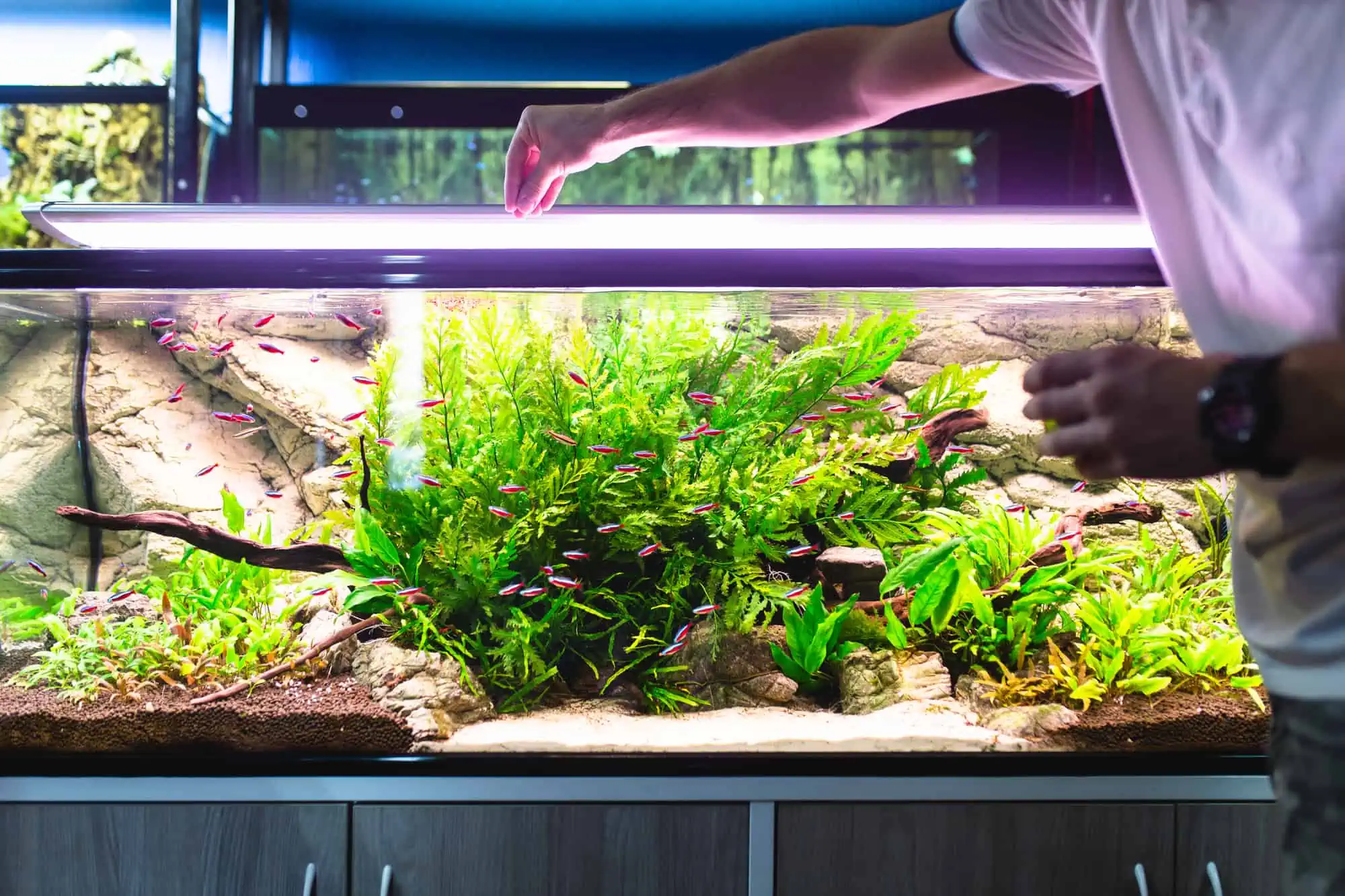
In the wild environment, many fish and other creatures tend to be opportunistic feeders, grabbing a meal whenever it swims or floats past them. But unfortunately, that can lead to overzealous owners feeding their fish too much too often.
Overfeeding your fish and other livestock can lead to a variety of serious problems. Uneaten food drifts into the substrate, eventually decomposing and releasing toxins, including ammonia, into the water. That can cause serious health problems for your fish and place a heavier burden on your filtration system.
Fish living in a dirty environment will quickly become stressed, leading to a compromised immune system and greater susceptibility to common fish diseases and parasites. Additionally, excess nitrates in the water act as a food source for algae, encouraging the green slimy menace to proliferate and grow on your viewing panes, decorations, rocks, and corals.
To avoid the problem of overfeeding your livestock, research each species thoroughly to find out what kind of diet each needs and how often you should feed them. Some fish might only need to eat once or twice a week, whereas others might require a couple of small feeds every day.
Some fish are diurnal, being more active and searching for food during the daytime, while nocturnal fish feed during the hours of darkness. Be sure to feed your fish at the correct time of day to avoid wastage.
Ignoring Trace Elements

In nature, fish ingest trace elements through their diet and by grazing on plant matter and algae. Many trace elements, such as calcium, magnesium, and iodine, play essential roles in the growth and development of fish, corals, and other invertebrates.
You’ll need to supplement those important trace elements in the captive environment. If your livestock doesn’t receive those nutrients, stunted growth, faded colors, and even death in sensitive organisms can result.
Invest in a high-quality reef supplement and carefully follow dosing instructions to maintain proper levels within the aquarium.
Skipping Regular Water Changes

Although your aquarium might look pristine and crystal clear, the water could still contain a dangerous buildup of toxins and pollutants, which could harm or kill your fish.
Regular water changes are essential to get rid of accumulated organic waste, replenish trace elements, and keep the water parameters stable. If you don’t carry out regular water changes, your aquarium will quickly become unsanitary and unpleasant for your pets.
Ideally, you should aim to change 10 to 20% of the water in your aquarium every two to four weeks, using a high-quality salt mix and dechlorinated water.
Overcrowding
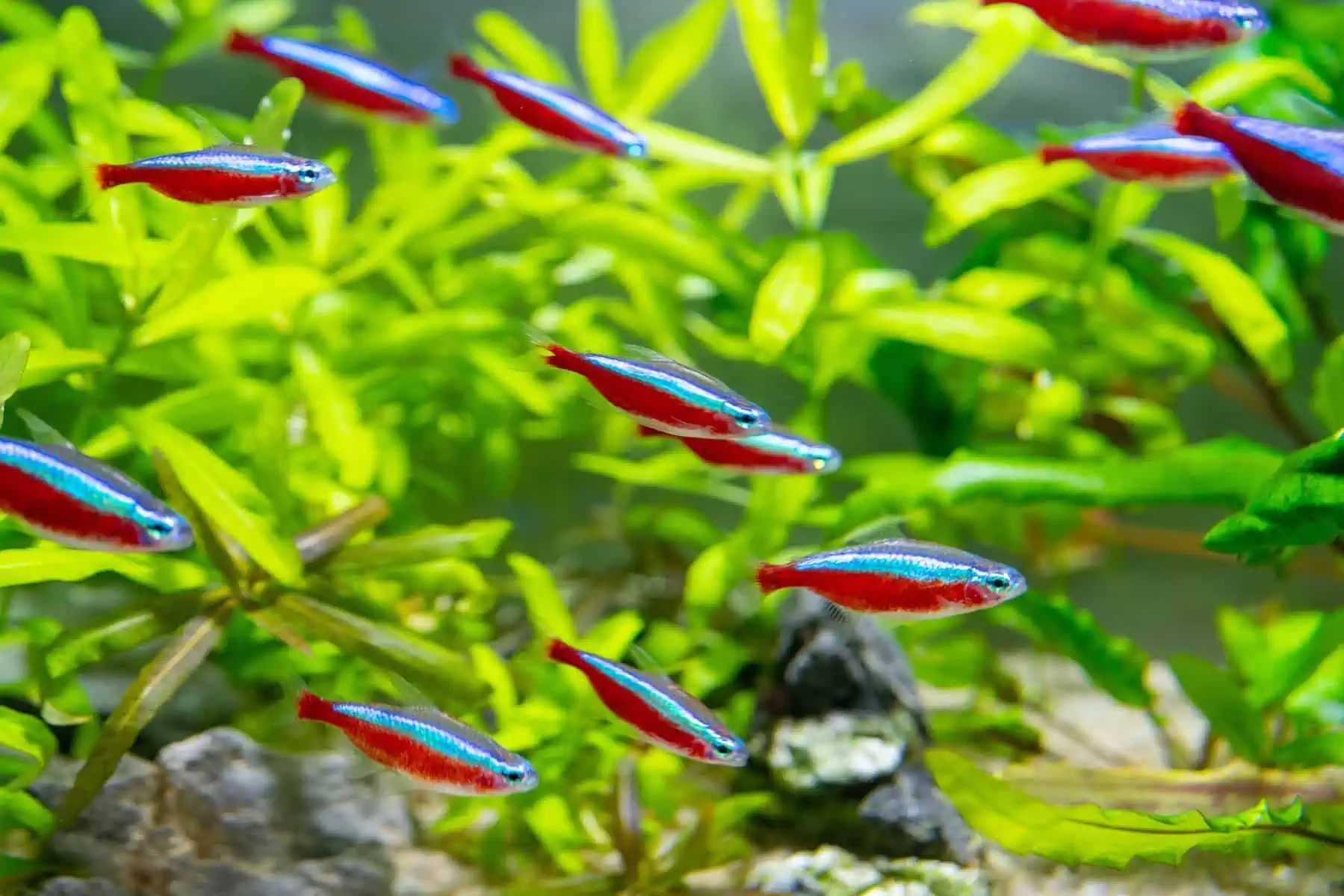
Overcrowding can be a big problem in many marine tanks. If you think about it, the ocean is a vast place with plenty of room for all the creatures living in it. Compare that with a modest home aquarium, and you can see how easy it is to overstock your tank.
Since every species’ habits and behaviors differ, you must do plenty of research before adding fish and other creatures to your aquarium. Some species like to live in tight-knit schools or loose shoals, requiring a large tank with plenty of open water swimming space to accommodate them. Others are solitary, territorial types that need lots of hiding places and caves to claim as theirs and won’t tolerate other fish straying onto their patch.
Remember that the fish you see on display in fish stores are usually juveniles with a lot of growing to do before they reach adulthood. Again, research the species carefully to determine its adult size, and be sure your aquarium is large enough to accommodate them.
Overstocking your aquarium can put undue stress on your fish and corals, leading to aggression, competition for resources, and poor water quality.
Poor Quarantine Practices

New livestock is one of the primary sources of bacteria and parasites that attack aquarium fish. Imagine bringing home some new coral or a beautiful new fish you spend hundreds of dollars on, only to find your entire collection gets sick within a few days of adding the newcomers to your main tank!
That can be a big problem for marine hobbyists since many of the specimens available are wild-caught and often come with unwanted hitchhikers, putting your entire tank at risk.
The best way to prevent that is by quarantining new arrivals in a separate tank for at least four weeks and monitoring them for signs of illness before introducing them to your main display tank. That way, you can treat the fish for any diseases, only adding them to your main tank when you know they are completely healthy.
Inadequate Filtration
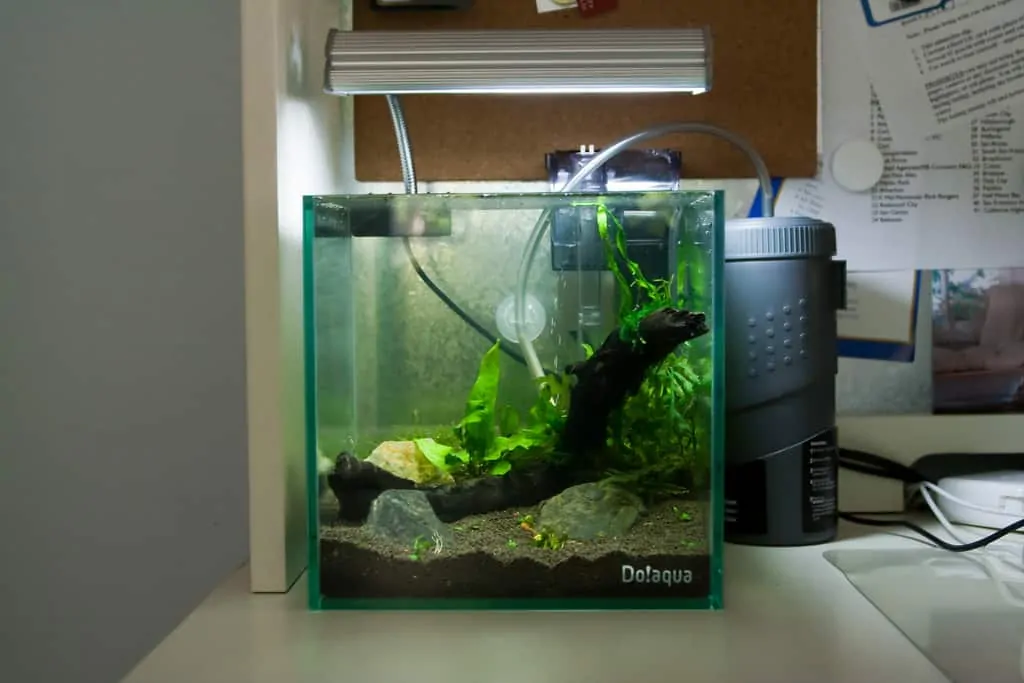
Regardless of its size and the frequency of the water changes you carry out, every aquarium needs proper, adequate filtration. Unfortunately, many new hobbyists underestimate the importance of adequate filtration, but running a filter that’s powerful enough to cope with the size of your aquarium and the mess made by the tank’s inhabitants is critical.
As mentioned earlier in this article, organic matter, such as fish waste, uneaten food, dead organisms, and algae, all contribute to the pollutant burden in your tank. Ultimately, your biological filter system removes most of the harmful toxins like ammonia, nitrites, and nitrates from the water, keeping it safe and healthy for your fish.
Invest in a decent-quality protein skimmer, mechanical filter, and biological media to maintain pristine water conditions in your marine tank. Once the filtration unit is set up, be sure to run it 24/7/365 and clean and maintain the unit properly to keep it running efficiently.
Choosing Incompatible Fish
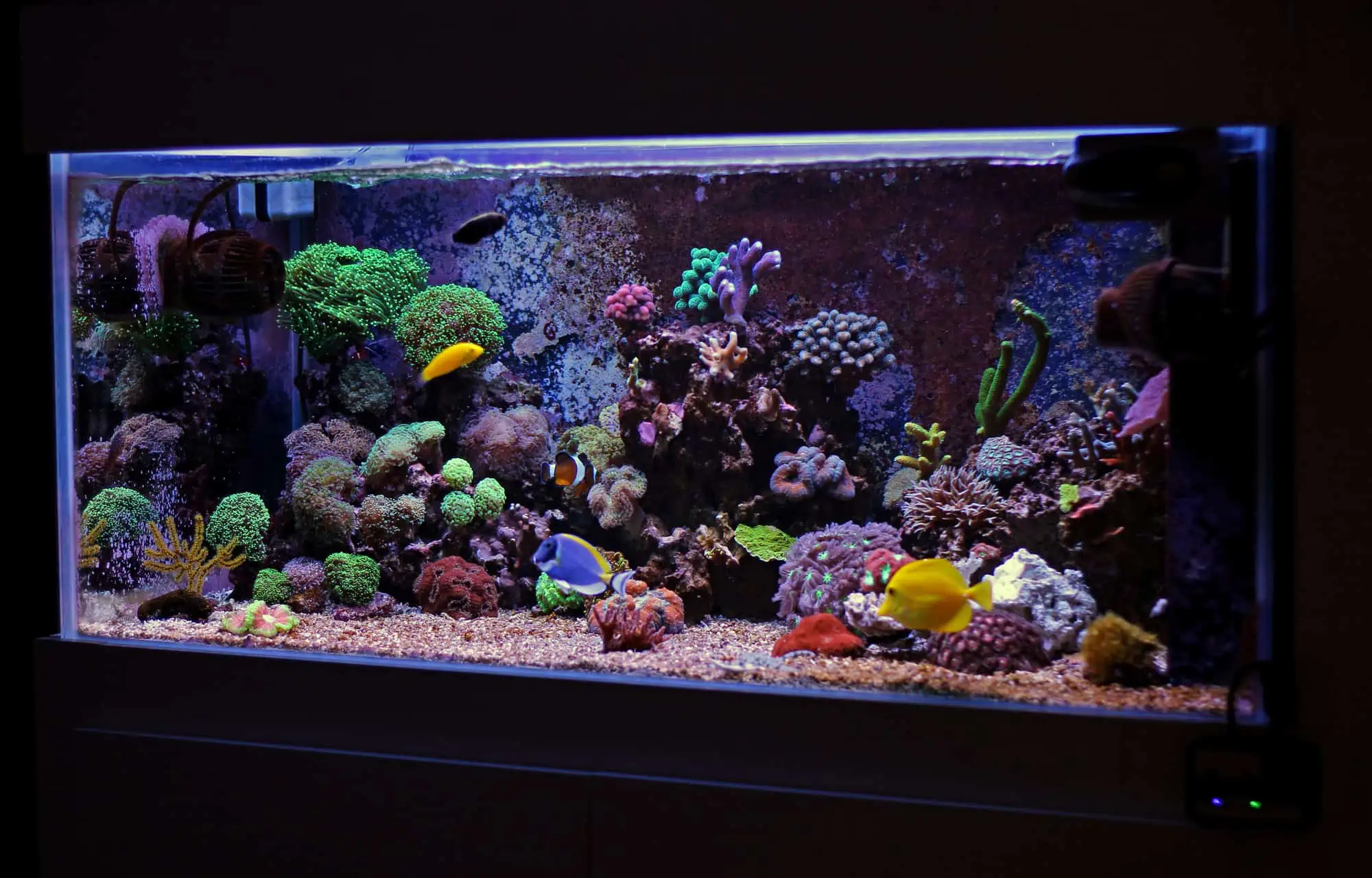
Many tropical marine fish species prefer to live solitary lives, so don’t make the schoolboy error of choosing species that won’t get along. When to introduce the fish is another important consideration. Some species do best when introduced to an empty tank, whereas others will happily tolerate an existing population.
If you’re unsure what types of fish and invertebrates can make a harmonious, happy marine community, ask the experts in your local fish store for advice and guidance.
Inadequate Lighting

Adequate lighting is critical for the health and growth of photosynthetic saltwater organisms, such as corals.
Inexperienced hobbyists either use inadequate lighting or leave their lights on for extended periods, which often leads to bleaching and other light-related issues.
Avoid lighting problems by investing in high-quality LED or T5 lighting fixtures with programmable timers that enable you to simulate natural daylight cycles and provide enough intensity for your photosynthetic organisms.
Ignoring pH and Alkalinity Levels
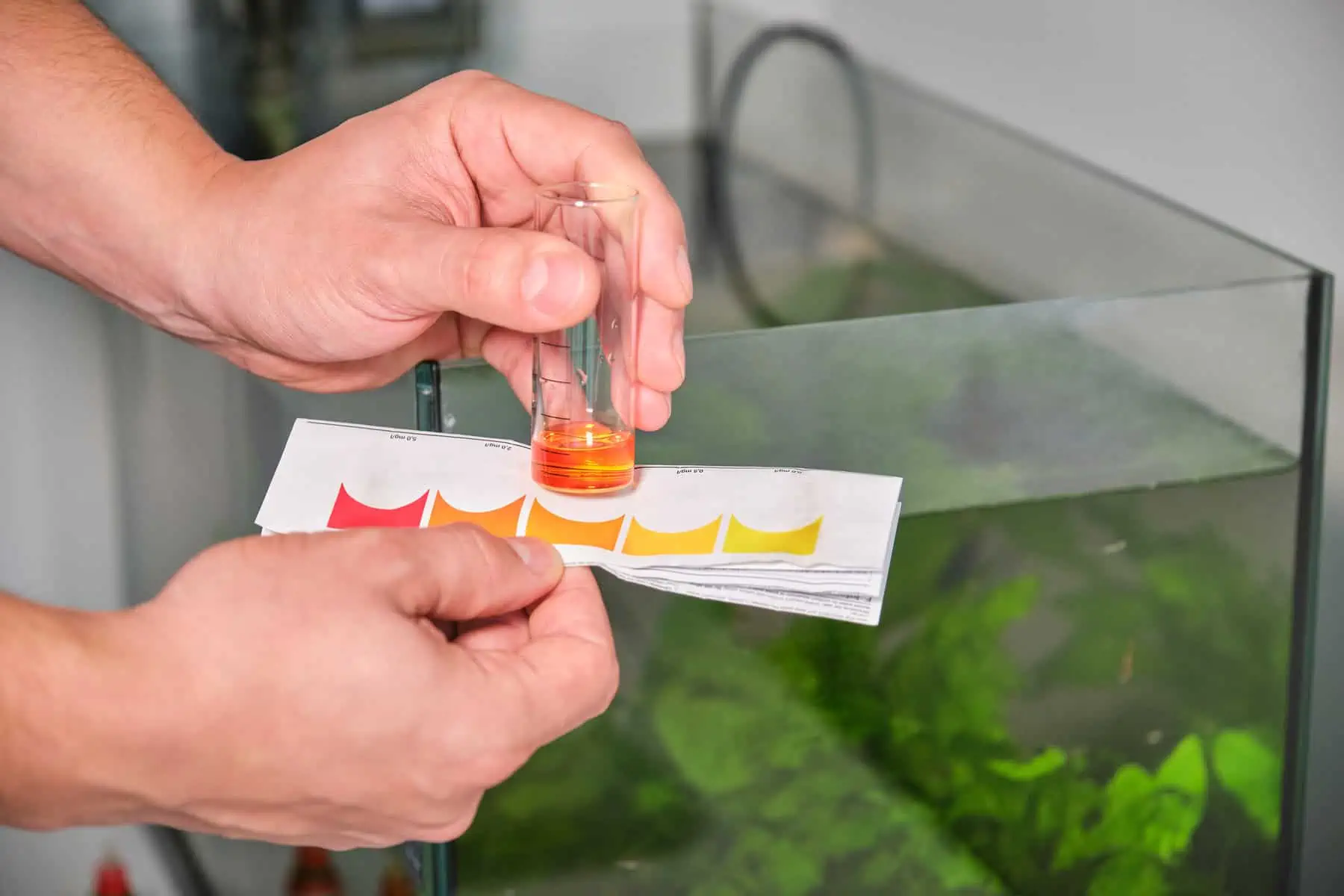
Saltwater aquariums need stable pH and alkalinity levels to keep the conditions healthy for your corals and other livestock. Fluctuations in pH and alkalinity will stress your corals and inhibit calcification, potentially leading to skeletal issues and poor growth.
Monitor pH and alkalinity parameters regularly, and use buffers and additives as needed to keep the levels within the correct parameters and prevent them from fluctuating.
Final Thoughts
If you’re doing any of the above things, you need to stop right now!
To create and maintain a thriving marine ecosystem, avoiding these common mistakes in saltwater aquarium management is essential. Pay attention to salinity levels, avoid overfeeding your fish, ensure the trace elements your pets need are present in the aquarium, and carry out regular water changes. Beware of overstocking your aquarium, quarantine all new fish and invertebrates, and ensure lighting levels in your tank are correct.
Avoid making these rookie errors; your marine tank will be a pleasure you can enjoy for the longest time!


